6 Movies That Got Mental Illness Correct
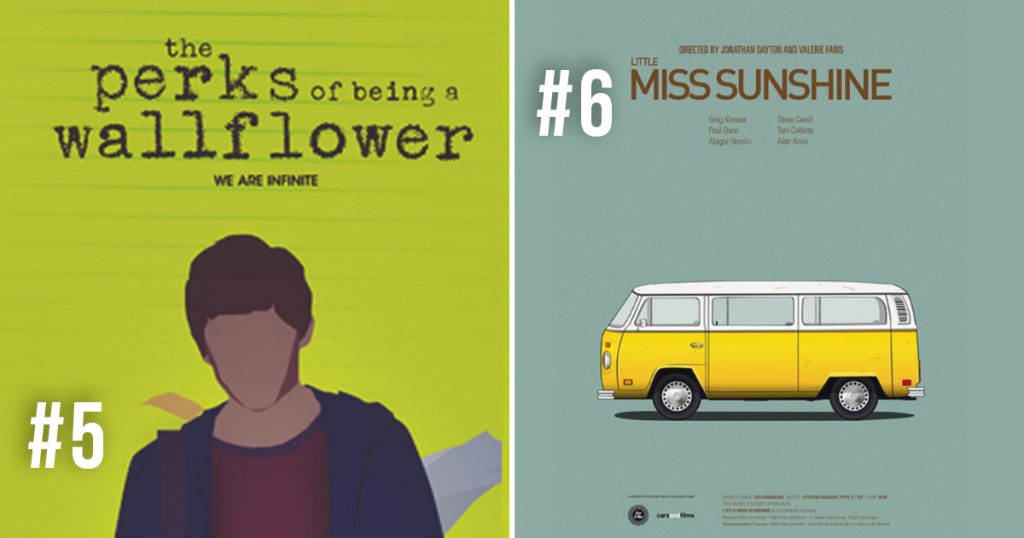
Understanding mental illness isn’t something that can happen overnight, especially when one takes into consideration just how many mental illnesses there are. While we won’t be able to understand them all within the blink of an eye, there are some movies that give us accurate depictions of them either in part of as a whole. What follows here within will overlook the stylistic privileges that the directors take to keep things interesting and instead focus on what they got right about mental illness. Most of these movies not only show us what happens to the sufferer but also what happens to those around them. Without further ado, here is a list of movies that got mental illness correct.
1. Melancholia (2011): Depression
In Melancholia, a movie that is visually nothing short of a work of art, director and writer Lars van Trier gives viewers a window into the inner workings of depression. The title of the film refers to a new planet that appears to be on a collision course with Earth and how two sisters deal with the news. One sister, Justine, is outwardly depressed on her wedding day as her family doesn’t appear to be the most cohesive bunch. The other sister, Claire, internalizes her family’s dysfunction and it all boils over with her fear that Melancholia will end life as she knows it. The name of the planet alone gives it away that its appearance is an outward manifestation of Claire’s depression and anxiety over her family and life which is an interesting way to grab the audience’s attention.
2. Girl Interrupted (1999): Borderline Personality Disorder
Girl, Interrupted started out as an autobiography by author Susanna Kayen and ended up as a movie staring Wynona Rider as Kaysen. Over the course of the nearly hour and a half runtime we meet many women, all within the confines of a mental hospital in the 1960s. In the film we see many instances of mental illness including self-harm, eating disorders, and sociopathic tendencies but it focuses itself upon Kaysen and her struggles with a new diagnosis of borderline personality disorder. We watch as Susanna realizes that her long list of failed relationships and unstable emotional standing really aren’t things that all teenagers go through and are in fact rather serious issues that require psychological care. By the end of the movie we see that Susanna is better but thankfully it isn’t all depicted as being perfect when she leaves the hospital after her 18 month stay. Mental illness is rarely, if ever, tied up with a bow once it’s all said and done and that is perhaps the most refreshing and realistic aspect of the film.
3. Benny & Joon (1993): Schizophrenia
In director Jeremiah S. Chenick’s film Benny & Joon we are introduced the titles characters who are a brother and sister duo who lost their parents when they were young. We are immediately aware that Benny takes care of his mentally ill sister, Joon. It is implied that Joon suffers from schizophrenia and, in a twist we don’t see much in Hollywood, she is not depicted as a murderous psychopath. Instead we see a woman who is extremely artistic and deeply afraid of things that she can’t fully express or understand. We are also given a glimpse into Joon’s heart when she meets Sam, a man who is eccentric and who appears to have a developmental disability though it isn’t really touched on in the film’s plot. Joon and Sam fall in love but this only ends up aggravating her illness as she tries to push back against her symptoms, ending up in the hospital after a particularly devastating breakdown. This is another film that doesn’t give us the bows and whistles treatment at the end and instead shows us that many with mental illness can learn to live independent lives and fall in love.
4. What’s Eating Gilbert Grape (1993): Anxiety, PTSD, Depression, Eating Disorders
What’s Eating Gilbert Grape focuses on the life of the title character, Glibert, while he takes care of his disabled brother and handles everything his family needs after his father’s death. The movie touches a bit on the fact that Gilbert’s father hung himself in the basement and thusly hints that he was depressed for some time before hand. While the film also depicts Gilbert’s spiral into depression due to the various strains his family puts on him the more prominent instances of mental illness actually come in the package of his mother. Bonnie Grape suffered from anxiety and a deep depression after he husband’s suicide and ended up with PTSD which manifested in panic attacks when her children would “disappear on her” like her husband had right before his death. She is also morbidly obese which more than hints to her having a severe eating disorder and perhaps an addiction to food. While there is no happy ending for the Grape family as Bonnie eventually succumbs to her obesity, it is important to show the reality of just how detrimental mental illnesses can be on the family of the sufferer.
5. The Perks of Being a Wallflower (2012): PTSD, Depression, Anxiety, Suicidal Thoughts
The Perks of Being a Wallflower follows Charley as he tries to find his way within the world of high school and friends. Early on it is evident that Charley has issues with anxiety and depression but we don’t get into the nitty gritty of it all until later in the film. As the plot continues we are introduced to a side of Charley that other’s weren’t expecting and some symptoms of PTSD behavior come to light. Eventually we are introduced to Charley’s aunt, whom we find out sexually assaulted him when he was a child. At this point we find out that Charley isn’t just a little bit depressed about a falling out with his friends but is indeed severely depressed and suffers from not only suicidal thoughts but suicidal actions as well. Charley luckily receives some much needed in-patient help and while it is evident that there were added dramatic elements to make for a good movie we are also given a good look at just how sneaky mental illness can be.
6. Little Miss Sunshine (2006): Depression, Suicidal Thoughts
Little Miss Sunshine puts the viewer within the “every family” of the Hoovers. This film touches on the concepts like step-parenting, extended family within the home, large age gaps in children, and taking care of elderly family members. We are introduced to Frank who is the uncle to the main character Olive and who happens to have just left the hospital after a suicide attempt. The attempt itself was brought on by depression over a breakup of a relationship and the loss of his job. Showing the acute symptoms of depression in Frank allowed the filmmakers to show how quickly those thoughts can take hold within someone. The film also touches on the longer term depressive symptoms with the rest of the family which adds a good bit of depth to the story.

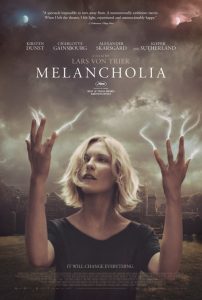
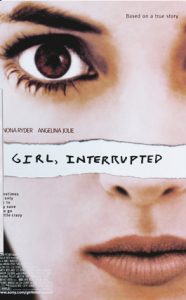
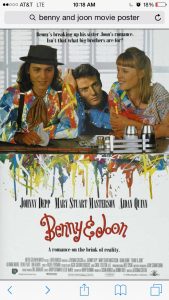
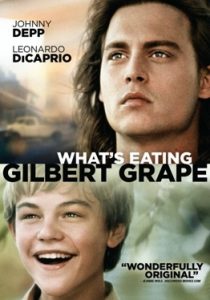
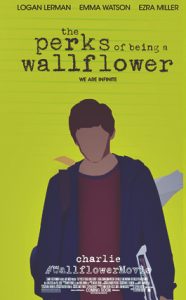
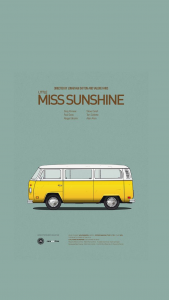



Hi Lyvonne! Great article! I have seen most of the movies you have listed here and love them! Winona Ryder was spectacular in Girl, Interrupted. The book is amazing, too. Susanna Kaysen is super talented with her words! And I have an incredibly soft spot for The Perks of Being a Wallflower and Little Miss Sunshine. The way the characters go through the motions of the mental disorders they have are very much real and accurate. I’m definitely going to have to re-watch some of these! =)
I couldn’t help but be drawn to The Perks of Being a Wallflower and Little Miss Sunshine for that exact reason. I really liked how the writers decided to portray them in realistic ways when they could have gone completely stereotypical to enhance the “viewing pleasure.” Thank you for your reply by the way. I like hearing back from readers so that I know what works for articles and what doesn’t.
Lyvonne
PARENTHOOD (1989): ADHD?
Parenthood would be a great one to discuss on a follow up article to this one, though I think that one should focus more on learning/developmental disabilities. If you have any other suggestions please drop them in the comments. Thanks!
I like that the films chosen for this list focus on the afflicted and the people around them. Illness doesn’t happen in a vacuum and that’s such an important piece. I just have a couple of follow up questions for you.
Why do you think that it’s so difficult for Hollywood to accurately depict mental illness? Additionally, do you feel that writers only get it right when mental illness is a major plot point for the characters in a story and thus unavoidable?
Finally, what have you learned about mental disorders through film that may not have “clicked” or connected through direct study? I’m interested in knowing if any of the films have enhanced your learning experience.
In all honesty I think Hollywood has such difficulty in this arena because they tend to force every stereotype they can for that particular mental illness. Part of that might be due to the fact that people outside of these worlds don’t recognize the subtle sides of the illnesses and thus grasp onto what they think they look like. I do think that there is more effort put into the characters and the illness when they are unavoidable plot points but that isn’t to say that there aren’t some great examples of the littler knows aspects out there as well. I have noticed that some movies have characters with heavy mental illnesses where the movie gets more things wrong than they do right. Which is frustrating to those that suffer from them, their families, and those that are trying to break down those walls an stereotypes.
I think as a whole I have learned just how real these illnesses are. I have spent a lot of time studying psychology and a textbook is fantastic for facts but you miss out on the human element of things at times. You can forget that those who suffer from mental illnesses are more than just statistics or case studies so being able to see them in real world scenarios sort of brings it all back to reality. That and movies allow for people to get these wonderful snapshots of interactions and scenarios. The writers and directors have the power to bring our attention to parts that they feel to be the most important then we, as the audience, get to experience these events in what feels like real time. Hollywood, if they do it correctly, has a fantastic opportunity to show us all what it’s like from another perspective.
[…] is one subject that can be over worked when it comes to television and movies. In the article 6 Movies That Got Mental Illness Correct, there was a compilation of those films that we felt did the best job with mental illness. This […]
[…] illness is one subject that can be over worked when it comes to television and movies. The article 6 Movies That Got Mental Illness Correct is a compilation of those films that we felt did the best job with mental illness. This article is […]
I appreciate the list and would suggest an add of ‘Nuts’ featuring Barbra Streisand and Richard Dreyfus. It also takes a stab at trafficking/prostitution.
As far as movies depicting characters with developmental disabilities, I really liked I Am Sam with Sean Penn. I’ve worked in the mental health field (mostly people on the other side of mental illness, such as what this article was focused on), but from what I’ve seen I really think that was written rather well. Just my opinion. 🙂
How about Identity and Split?
Does Mary and Max (2009) counts?